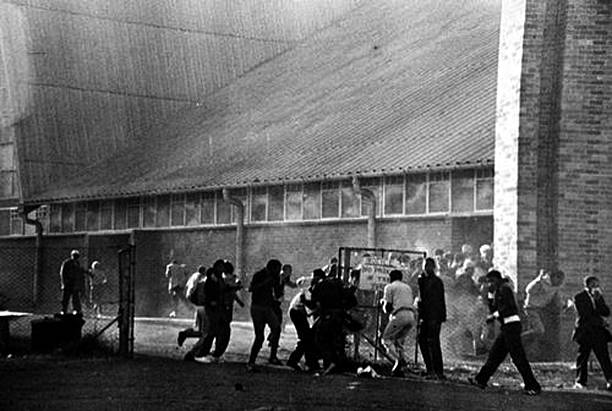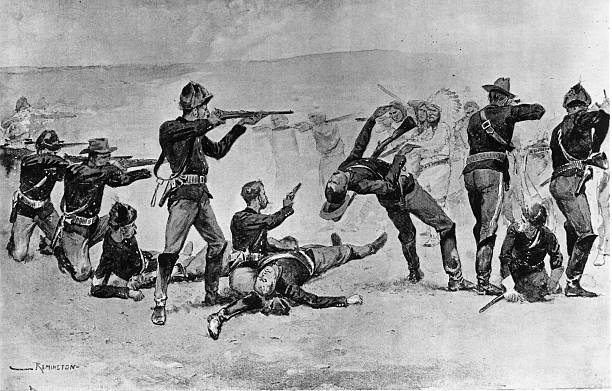Revolutionary Resistance: The Impact of the Soweto Uprising
In 1976, South Africa was under the grip of apartheid, a system of institutionalized racial segregation and discrimination that favored the white minority at the expense of the black majority. The Soweto school strike and uprising, which began with a protest by students in the township of Soweto on June 16, 1976, was a turning point in the struggle against apartheid.
The Spark that Ignited the Uprising
The Soweto school strike and uprising was a pivotal moment in the struggle against apartheid, the system of racial segregation and discrimination that had been in place in South Africa since the 1940s. The policy of teaching in Afrikaans was deeply unpopular among black students, as it was seen as a way of reinforcing white supremacy and erasing African culture and identity. The students demand to be taught in English, which was widely spoken and understood, was a reflection of their desire to preserve their cultural heritage and resist the oppressive policies of the apartheid government.
The protest began as a peaceful march, with students carrying placards and singing songs, but it quickly turned violent as police and government forces responded with force. The police used tear gas, rubber bullets, and live ammunition against unarmed protesters, resulting in many injuries and deaths. The violence sparked outrage and condemnation worldwide, and the Soweto uprising symbolized the struggle against apartheid and the fight for freedom and equality.
The Soweto uprising was not an isolated event but rather the culmination of years of activism and resistance. Black South Africans had been subjected to a range of discriminatory laws and policies, including the pass laws, which required them to carry identification documents and restricted their movements, and the Group Areas Act, which mandated racial segregation in housing and public spaces. The government had also banned many political organizations, including the African National Congress (ANC), which had been formed in 1912 to fight for the rights of black South Africans.

Young rioters surround a burning bus during the Soweto Uprising in Johannesburg, 17th June 1976. The riots were a reaction against the government’s repressive apartheid policies.
The Brutal Government Response
The government’s response to the protest was brutal. The police and army used violence to suppress the protest, resulting in many deaths and injuries. The images of police brutality and the sight of young people being shot and killed shocked the world and sparked international condemnation of the apartheid regime.
Galvanizing the Anti-Apartheid Movement
The Soweto uprising galvanized the anti-apartheid movement both in South Africa and around the world. It brought together young people, students, workers, and other activists in a united front against the government. The protest inspired other demonstrations and protests throughout South Africa, as well as in other countries, and it exposed the brutality and injustice of the apartheid regime.

Demonstrators in the streets during the Soweto uprising, South Africa, 21st June 1976.
The Impact on South African Society and Politics
The Soweto uprising had a lasting impact on South African society and politics. It helped to pave the way for the eventual overthrow of apartheid and the establishment of a democratic government in South Africa. The protest also had a profound impact on the African National Congress (ANC), which gained momentum as a result of the uprising. Nelson Mandela, who was in prison at the time, became a symbol of the anti-apartheid struggle, and the ANC’s armed wing, Umkhonto we Sizwe, gained support and legitimacy due to the protest.
Remembering the Legacy of the Soweto Uprising
Today, the Soweto uprising is remembered as a pivotal moment in the struggle for freedom and equality in South Africa. It demonstrated the power of popular resistance and the importance of grassroots activism. The protest serves as a reminder of the bravery and determination of the young people who took to the streets in 1976. Their legacy continues to inspire those fighting for justice and equality today.
In conclusion, the Soweto school strike and uprising was a significant event in South African history and the struggle against apartheid. It demonstrated the power of grassroots activism and popular resistance, and it galvanized the anti-apartheid movement both in South Africa and around the world. The protest serves as a reminder of the bravery and determination of the young people who took to the streets in 1976. Their legacy continues to inspire those fighting for justice and equality today.

